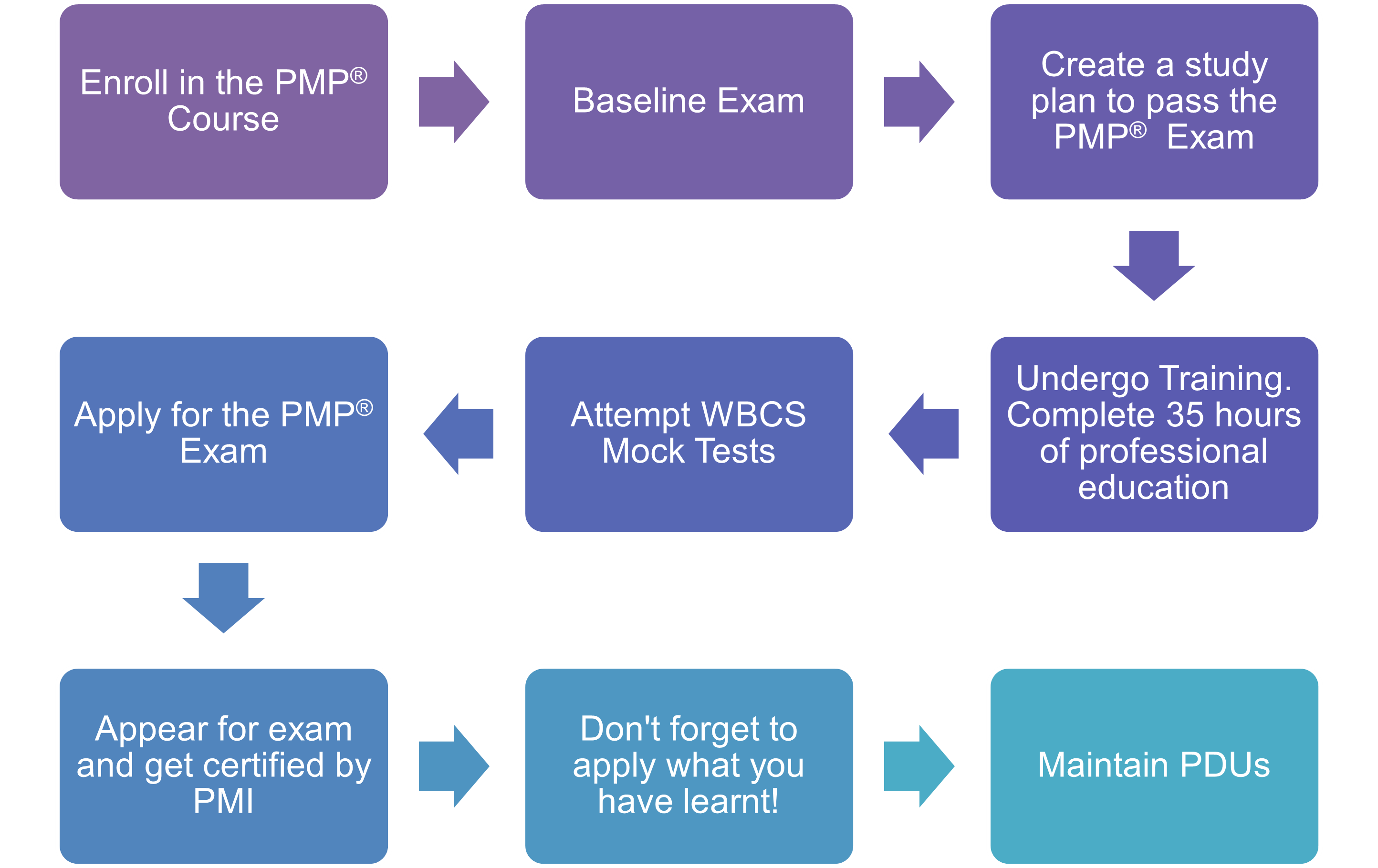Course Overview:
The PMP® Certification Training Program is a comprehensive course designed to provide participants with the knowledge and skills required to pass the Project Management Professional (PMP®) certification exam. This training program covers the principles and best practices outlined in the Project Management Body of Knowledge (PMBOK®) Guide, including PMBOK® 7, PMBOK® 6, and Agile methodologies. Participants will gain a deep understanding of project management concepts and techniques, enhance their project management competencies, and prepare for the PMP® certification exam.
Course Content:
Module 1: Introduction to Project Management
- Project management overview
- Role of the project manager
- PMBOK® Guide structure and components
- Introduction to PMP® certification exam
Module 2: Project Integration Management
- Develop project charter
- Develop project management plan
- Direct and manage project work
- Monitor and control project work
- Perform integrated change control
- Close project or phase
Module 3: Project Scope Management
- Plan scope management
- Collect requirements
- Define scope
- Create WBS
- Validate scope
- Control scope
Module 4: Project Schedule Management
- Plan schedule management
- Define activities
- Sequence activities
- Estimate activity durations
- Develop schedule
- Control schedule
Module 5: Project Cost Management
- Plan cost management
- Estimate costs
- Determine budget
- Control costs
- Earned value management (EVM)
Module 6: Project Quality Management
- Plan quality management
- Perform quality assurance
- Control quality
- Quality tools and techniques
Module 7: Project Resource Management
- Plan resource management
- Estimate activity resources
- Acquire resources
- Develop team
- Manage team
- Control resources
Module 8: Project Communication Management
- Plan communications management
- Manage communications
- Control communications
- Effective communication techniques
Module 9: Project Risk Management
- Plan risk management
- Identify risks
- Perform qualitative risk analysis
- Perform quantitative risk analysis
- Plan risk responses
- Monitor and control risks
Module 10: Project Procurement Management
- Plan procurement management
- Conduct procurements
- Control procurements
- Close procurements
Module 11: Project Stakeholder Management
- Identify stakeholders
- Plan stakeholder engagement
- Manage stakeholder engagement
- Control stakeholder engagement
Module 12: Agile Project Management
- Introduction to Agile methodologies
- Agile project management frameworks (Scrum, Kanban)
- Agile integration with traditional project management
Module 13: Principles & Performance Domain
- System for Value Delivery
12 Principles of Project Management
- Be a Diligent, Respectful & Caring Steward
- Create a Collaborative Project Team Environment
- Effectively engage with Stakeholders
- Focus on value
- Recognize, Evaluate & Respond to System Interactions
- Demonstrate Leadership Behaviors
- Tailor based on context
- Build Quality into Process and Deliverables
- Navigate Complexity
- Optimize Risk Responses
- Embrace Adaptability & Resiliency
- Enable Change to Achieve the Envisioned Future State
8 Project Performance Domains
- Stakeholder Performance Domain
- Team Performance Domain
- Development Approach & Life Cycle Performance Domain
- Planning Performance Domain
- Project Work Performance Domain
- Delivery Performance Domain
- Measurement Performance Domain
- Uncertainty Performance Domain
Module 14: PMP® Exam Preparation
- PMP® exam structure and format
- Test-taking strategies and tips
- Practice questions and quizzes
- Mock exams to simulate the PMP® certification exam
Note: The course content is designed to cover the PMBOK® Guide, PMBOK® 7, PMBOK® 6, and Agile methodologies. The duration and delivery format of the training program can be customized based on specific requirements and participant needs.










